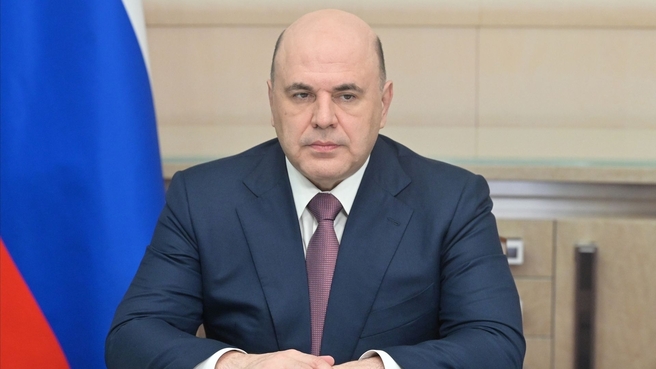Agenda: Expanding the regions’ opportunities as part of budget loan restructuring, improving the out-of-court bankruptcy procedure, accelerating the introduction of a waste recycling mechanism, and simplifying procedures for cross-border paperless trade in the Asia-Pacific region.
Mikhail Mishustin’s opening remarks:
Good afternoon, colleagues.
The President is concerned about the measures to ensure the stability of regional budgets.
The Government continues to support the Russian Federation’s regions by creating favourable conditions for achieving their development goals.
So, we have decided to expand the authority of the regions to use the extra funds from the restructured budget loans. In 2023 and 2024, they will be able to spend these additional funds to assist businesses that continue to operate despite the external pressure. The regions can also spend them on implementing development projects.
The regions can still use this money for the construction and modernisation of infrastructure and for connecting housing and other facilities to utility lines. This will help balance national economic development and create a more people-friendly environment.
Now, let’s move on to the agenda, in particular, assistance for people facing difficult financial situations. We will review a bill for improving the pre-trial bankruptcy procedure.
The President has instructed us to make this procedure more affordable and to focus on senior citizens and families with children.
Today, they can have debt written off under a court ruling. However, they find this process rather difficult, and the penalties can continue indefinitely.
At the President’s initiative, we have drafted a bill that expands their ability to write off debt without a court hearing.
From now on, they will be able to have their debt written in 12 months’ time if their debt does not exceed 1 million roubles. This procedure will enter into force this year.
We hope this measure will help support people, and that they will be able to resume an income without worrying about frozen accounts or a court bailiff calling on them.
Our next issue deals with efforts to raise the quality of life for our citizens, including through the creation of environmental protection measures. Today’s agenda includes the fourth most important bill that should expedite the introduction of a waste recycling mechanism that will make it easier to reuse it. In his address to the Federal Assembly, the President noted the need to expand the capacity for converting to a closed-cycle economy. New regulatory documents will make it possible to use more environmentally friendly materials, which should reduce environmental fees. Packing, boxes and crates now account for about 50 percent of household waste. The bill notes that all of these should be processed within the next four years to reduce environmental impact and to reuse them more effectively. This should help reduce the number of landfill sites and unauthorised waste dumps, as well as environmental impact, by creating more favourable and healthier living conditions.
The agenda also includes a bill for simplifying trans-border e-commerce in the Asia Pacific region.
Russia is currently developing this area. The President has repeatedly noted the need to allow people to use electronic documents more actively to reduce the amount of paperwork. The EAEU member states are streamlining this interaction. A framework agreement allows the signatory countries to recognise commercial documents and data in a digital format, including commodity exports, imports and transit. This makes foreign trade transactions much more transparent, and this will support Russian businesspeople who work with eastern partners.
The UN Economic and Social
Commission for Asia and the Pacific estimates that the introduction of such solutions
will help reduce commercial outlays by almost 25 percent. Today, 11 countries, among
them Azerbaijan, Bangladesh, China, Iran, Mongolia, the Philippines, Tajikistan
and Turkmenistan, are involved in this process. It is important to facilitate
effective cooperation with them. This will help us expedite freight movement and
monitor trans-border operations more closely.












